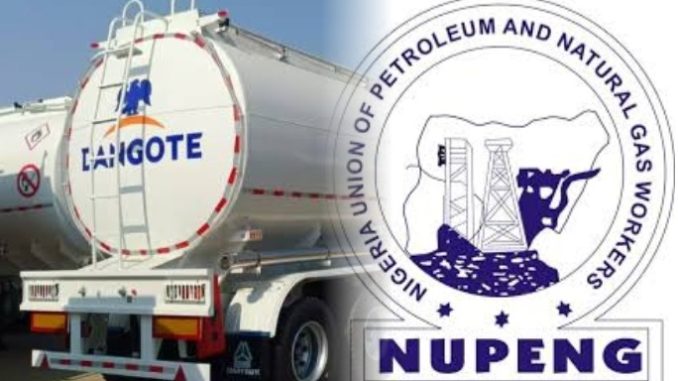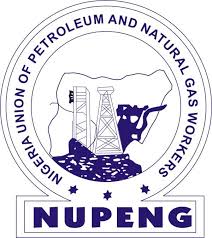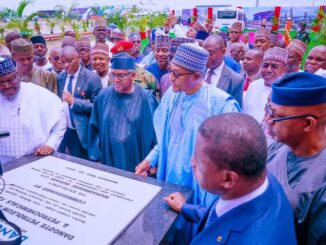
By Seyi Gesinde
August 9, 2025
The latest turmoil in Nigeria’s fuel sector stems from a fundamental clash over workers’ rights between Dangote Refinery and the Nigeria Union of Petroleum and Natural Gas Workers (NUPENG).
At the centre of the dispute is Dangote’s new fleet of 4,000 fuel trucks, whose drivers are reportedly being barred from joining NUPENG or any other union.
Drivers are allegedly required to sign agreements promising not to join any union, a move that NUPENG says violates the Nigerian Constitution and international labour standards.
The union is actively defending workers’ rights, insisting that employees must be free to organise and collectively bargain without coercion or restriction.
NUPENG insists that workers have the right to organise and belong to a union, warning that Dangote’s policy undermines decades of labour protections in the petroleum sector.
In defence of its stance, Dangote says the measure is part of an effort to streamline operations and improve efficiency.
ALSO READ: How Dangote Refinery is feat and shame for Nigeria, by former presidential aide
Nationwide strike action
Following Dangote’s policy, NUPENG announced a nationwide strike beginning Monday, September 8, 2025, which has halted fuel operations across several depots, raising fears of fuel scarcity in major cities.
Allied organisations, including the Petroleum and Natural Gas Senior Staff Association of Nigeria (PETROAN), the Independent Petroleum Marketers Association of Nigeria (IPMAN), and the Nigeria Oil and Gas Automotive Staff Association (NOGASA), have expressed solidarity with the Nigeria Union of Petroleum and Natural Gas Workers (NUPENG), warning that they may suspend fuel activities if the dispute is not resolved.
Government mediation
The Federal Government, through the Minister of Labour and Employment, Muhammad Maigari Dingyadi, convened a tripartite conciliation meeting with Dangote Group and NUPENG.
However, the talks ended in a deadlock after NUPENG reportedly absented itself. The government continues to urge dialogue to avert further disruptions in fuel supply.
Legal and human rights support
Prominent human rights lawyer Femi Falana, SAN, has backed NUPENG, describing Dangote’s policy as a violation of constitutional protections and international labour conventions.
Falana has called on the government to intervene, insisting that workers’ right to unionize is inalienable and cannot be overridden by corporate directives.
Implications and consequences
The standoff highlights more than just a labour disagreement, it is a battle over fundamental workers’ rights in Nigeria’s oil and gas sector.
The nationwide strike threatens fuel shortages, disrupts supply chains, and raises broader concerns about corporate governance and labour relations.
In essence, the clash is a test of whether workers’ rights can be protected against powerful corporate interests.
The resolution, or prolongation, of this dispute could set a precedent for how unions and major corporations interact in Nigeria’s critical energy sector.




